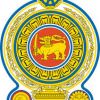ශ්රී ලංකා උක් පර්යේෂණ ආයතනය
Vision
To be the centre of excellence in sugarcane technologies and the leader in sugarcane industry development in the Asian region
Mission
Develop and transfer appropriate sugarcane technologies to enhance competitiveness of, and to contribute to expand and develop, the local sugarcane industry, in a sustainable manner
The Sugarcane Research Institute (SRI) is a statutory body established by the Act of Parliament No. 75 of 1981 to conduct research on cultivation and processing of sugarcane to cater to technical and technological needs of the development of thesugar industry of Sri Lanka. Presently, the institute is under the purview of the Ministry of Sugar Industry Development.
The institute’s main research complex is located at Uda Walawe, about 150 km off Colombo, towards the south-east. There is an administrative office in Rathmalana, about 10 km from Colombo towards the south. In addition, the institute has a sugarcane hybridisation station at Deniyaya, quarantine farm at Hanthana, Kandy, and a pathology farm at Siyambalanduwa. Four development Offices at Buttala, Hingurana, Passara and Siyambalanduwa have been established to liaise with sugarcane growers and millers.
The management and administration of the institute is vested in a Board of Governors. It consists of three eminent scientists appointed by the Minister, two nominated members representing the Ministry of Finance and the line Ministry and the Director of the Institute as the ex-officio member.
Goals
increase productivity of cultivation and processing of sugarcane and of its co-products processing
reduce costs of cultivation and processing of sugarcane and of its co-products processing
diversify sugarcane land use and processing industries
protect sugarcane-growing/producing environment
transfer technologies and promote their adoption
ensure formulation and implementation of appropriate policies and regulatory measures required for the development of the sugar sector by relevant authorities
Objectives
Increase availability of sugarcane varieties with improved commercial attributes in local plantations.
Improve sugarcane crop management practices.
ensure efficient utilisation of land, soil and water resources in sugarcane production with minimum environment degradation
diversify sugarcane land use
mechanise sugarcane farming
improve processing efficiencies of sugarcane and of its co-products
diversify sugarcane-based products
increase stakeholder knowledge of sugarcane technologies and provide necessary institutional coordination and support for adoption/commercialisation of such knowledge
guide authorities for formulation and implementation of policies and regulatory measures
Programmes
Crop improvement
Crop and resource management
Crop nutrition
Crop protection
Farm mechanisation
Sugarcane processing and product development
Technology transfer and development
Divisions
Technical divisions:
Crop Improvement
Crop and Re



